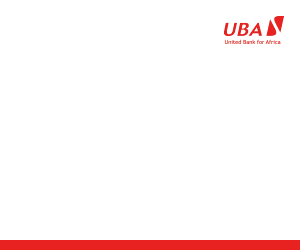• Plus factors that shaped last year’s fiscal activities
BY ISAAC ANUMIHE
On February 26, 2013, President Goodluck Jonathan signed the 2013 Budget which major highlight was zero allocation for the Securities and Exchange Commission (SEC).
Also, on March 14, 2013, the Federal Government released the first quarter of N400 billion to Ministries, Departments and Agencies (MDAs) to kick-start the implementation of the budget.
Although stakeholders expressed misgivings on the implementation of the budget given the fact that there were issues that were yet to be resolved, government assured that those issues could be addressed while the budget was being implemented.
The issues included the $79 per barrel of oil benchmark fixed by the National Assembly as against the Federal Government’s $75 per barrel benchmark.
Government argued that a number of issues informed the fixing of the $75 per barrel benchmark and called on the National Assembly to review its decision.
Government had explained that some African countries who were hitherto buying oil from Nigeria are now oil-producing. Also, United States of America (USA) which is a major oil-buying nation, is now self-sufficient in oil and has decided not to buy Nigerian crude.
Besides, there was the issue of depleting oil revenue due to pipeline vandalisation, oil bunkering and theft which resulted in major oil companies closing shop in Nigeria.
Having considered these factors, the Federal Government called on the National Assembly to reconsider the $79 per barrel benchmark.
The Co-ordinating Minister and Minister of Finance, Dr Ngozi Okonjo-Iweala had said that while the budget was being implemented, the Federal Government was looking for alternative sources of revenue.
According to her, the budget was basically structured on reducing expenditure and so promised that a number of steps would be taken to ensure that all the internally-generated revenues were remitted to the Federation Account.
To ensure that this policy was achieved, riot act was read to all revenue- generating agencies like the Nigerian National Petroleum Corporation (NNPC), the Nigeria Customs Service and the Federal Inland Revenue Service to ensure proper remittance of all revenues collected on behalf of the government by the agencies.
The government identified non-remittance of revenue collected by the agencies by the Chief Executive Officers of such agencies as a factor that would affect the revenue profile in the 2013 budget. So, beginning with the 2013 fiscal year, the government adopted zero tolerance against fractional or partial remittance of federal government revenue by the agencies.
To ensure that agencies complied with the full remittance directive, the government promised to hold sessions with CEOs of all revenue-collecting agencies.
Similarly, Okonjo-Iweala called on the National Assembly to repeal the laws establishing some agencies with duplicating functions in line with the Steve Oronsaye’s Report which recommended that some agencies and departments with duplicating functions be merged.
Plugging the leakage
Following the discovery of huge unremitted revenues to the Federation Account, the Federal Government on May 30, 2013, appointed 53 consultants to probe the banks involved in the acts.
The revenues were from taxes and duties from the Federal Inland Revenue Services (FIRS) and the Nigerian Custom Services (NCS) which are deposited in the banks for transfer to the federation account.
Speaking at the launch of the exercise on the verification and reconciliation of revenue collections and remittances by the collecting banks, in Abuja, Chairman, Revenue Mobilization Allocation and Fiscal Commission (RMAFC),
Engineer Elias Mbam said the commission, in pursuance of its mandate to monitor accruals into and disbursement from the federation account as enshrined in paragraph 32 (a) of the Third Schedule to the 1999 Constitution discovered some irregularities in the remittances of revenue from some collecting banks engaged by FIRS and NCS.
To this effect, his commission made a presentation to the Federation Account Allocation Committee (FAAC) which, at its meeting of March 19, 2013, approved that the commission should engage consultants to verify and reconcile revenue collections and remittances by banks engaged by both FIRS and NCS in order to recover any excess deduction and stop further leakages.
According to Mbam, after observing due process in line with relevant provisions of the Public Procurement Act, 2007, the commission appointed a lead consultant and 52 other consultants to carry out verification and reconciliation covering January 2008 to June 2012.
He said the exercise was to commence on June 3, 2013 and would be completed on August 15, 2013 when the lead consultant is expected to submit a final report to the commission.
Verifying agencies
The Lead Consultant, he said, would among other functions, supervise and co-ordinate the activities of other consultants, verify, reconcile and ensure that the flow of revenue from collecting agencies from January 2008 to June 2012 is in accordance with the relevant agreements between the collecting banks, FIRS and NCS.
Similarly, the other consultants would cover allocated banks and revenue sources as provided by the commission and reconcile all transfers from the lead banks to the federation account in the Central Bank of Nigeria and verify that the remuneration paid to each lead and collecting banks are in accordance with the agreements signed with FIRS and NCS.
Also, the Accountant General of the Federation was ordered to open a special account with the CBN into which all recoveries made shall be paid, in respect of this exercise.
The consultants shall be paid their professional fees from the amount recovered while the balance shall be remitted to the federation account for distribution to all tiers of government.
RMAFC chairman sought the co-operation of the FIRS and NCS, to ensure the success of the exercise.
Stopping bad agents
Central Bank of Nigeria (CBN) on July 26, 2013, revoked the operating licence of Express Discount Limited (EDL) and backdated it to July 16, 2013 because of the company’s inability to meet its capital requirement.
Addressing newsmen in Abuja, CBN Director of Banking Supervision, Mrs. Tokunbo Martins said it exercised its powers as contained in Section 2(D) of 2007 Act saying that the company’s shareholders have failed to inject a minimum capital of N21 billion to enable the company continue to operate.
In identifying the major issues with the management of EDL, Martins noted that some shareholders who held about 42 per cent of the company’s shares had their operating licences revoked in 2011 and their assets acquired.
According to her, the shareholders had failed to exercise necessary due diligence and oversight over the activities of the management of EDL, thus putting the company in grave financial condition.
Martins said the EDL also engaged in activities in contravention of Discount House guidelines and indulged in distress borrowing by sourcing funds at higher rates than it could earn by investing the funds.
2013 Capital implementations
On August 22, 2013, Federal Government made another release of N250 billion for capital projects for the third quarter of the year thus bringing the total figure so far released to N850 billion.
According to the Minister, the funds will be deployed to expedite the execution of key infrastructure, security and social projects captured in the Budget 2013 in line with priorities set out by President Goodluck Jonathan.
The latest figure means that a total of N850 billion was so far released for capital projects last year.
The government recalled that N400 billion and N200 billion respectively were released for capital projects in the first and second quarters of the year.
Cashless regime
On October 1, 2013, the Central Bank of Nigeria (CBN) introduced a cashless regime in Abuja and five other states in the federation including Anambra, Abia, Ogun, Kano and Rivers.
Recall that CBN introduced cashless/cashlite policy into the economy in January 2012 with Lagos as pilot state. But the novel policy met with a lot of challenges which include infrastructure, illiteracy and lack of enough sensitisation.
As a result, the introduction of the policy to other parts of the country, which would have taken off barely a year after, was delayed till July 1, 2013 instead of January, the same year.
And in July when the policy was introduced in six more states including the Federal Capital Territory (FCT), Rivers, Ogun, Kano, Anambra and Abia, a three-month window was given before penalty was applied in October. However, at the expiration of the three-month window on October 1, 2013, the full application of the policy was announced by the apex bank.
Following this, an individual’s transaction limit is N500,000 while a corporate body is entitled to N3 million transaction limit in a day from the same account. A two per cent of excess amount is charged on deposit transaction for individuals while a three per cent on deposit of excess amount is charged for corporates.
Also, a three per cent of excess amount is charged on withdrawals for individuals whereas five per cent of excess amount is charged for corporates.
Grassroots growth policy
CBN on October 12, 2013 set aside N20 billion for onward lending to Small and Medium scale Entrepreneurs (SMEs) at 9 per cent interest rate.
It also disclosed its intention to collaborate with state governments to provide low interest loans to Medium and Small Scale Entrepreneurs in the country.
NERFUND expropriation
On October 13, 2013, President Goodluck Jonathan ordered the CBN and Nigeria Deposit Insurance Corporation (NDIC) to take over the management of the wobbly National Economic Reconstruction Fund (NERFUND) for incurring over N5.7 billion losses and failure to service loans taken for on-lending from the African Development Bank (ADB) and other sources.
The decision to take over the management and control of the Fund followed the recommendations of the CBN and NDIC Joint Special Examination report on the books and affairs of the Fund.
According to the report, the capital invested in the institution by the Ministry of Finance had been completely eroded with gross losses which stood at N5.7 billion. The Fund, the report added, had not been able to service loans taken for on-lending from the African Development Bank (ADB), the Ministry of Finance and other sources.
The new management team appointed by the Ministry of Finance was headed by Mr. Muhammad Gidado Kollere of the NDIC as Managing Director/CEO and Mr. Ihua Elenwor of the CBN as Executive Director (Operations).
The team, which was to oversee the affairs of the institution for an initial period of one year was also mandated to, among other things, mount an aggressive recovery of all outstanding loans, overhaul the Fund’s records, reconcile all accounts with correspondent banks and render quarterly report to the Board of the Fund, headed by the Permanent Secretary, Federal Ministry of Finance.
New revenue formula
On December 19, Revenue Mobilisation and Fiscal Commission (RMAFC) announced that the long-awaited new revenue formula was ready.
The decision to release the document to President Jonathan for his approval was taken after a two-week retreat by the commissioners of the commission.
The last time the revenue allocation formula was reviewed was in 1992.
Also on December 19, the Co-ordinating economy minister, Dr Okonjo-Iweala presented the 2014 Budget to the National Assembly with a focus to create jobs, build infrastructure and reduce cost of governance.
The post How revenue diversion marred 2013 budget appeared first on The Sun News.
Follow us on Twitter: @NewsFetchers
Like our Facebook page: NewsFetchers













No comments
Post a Comment